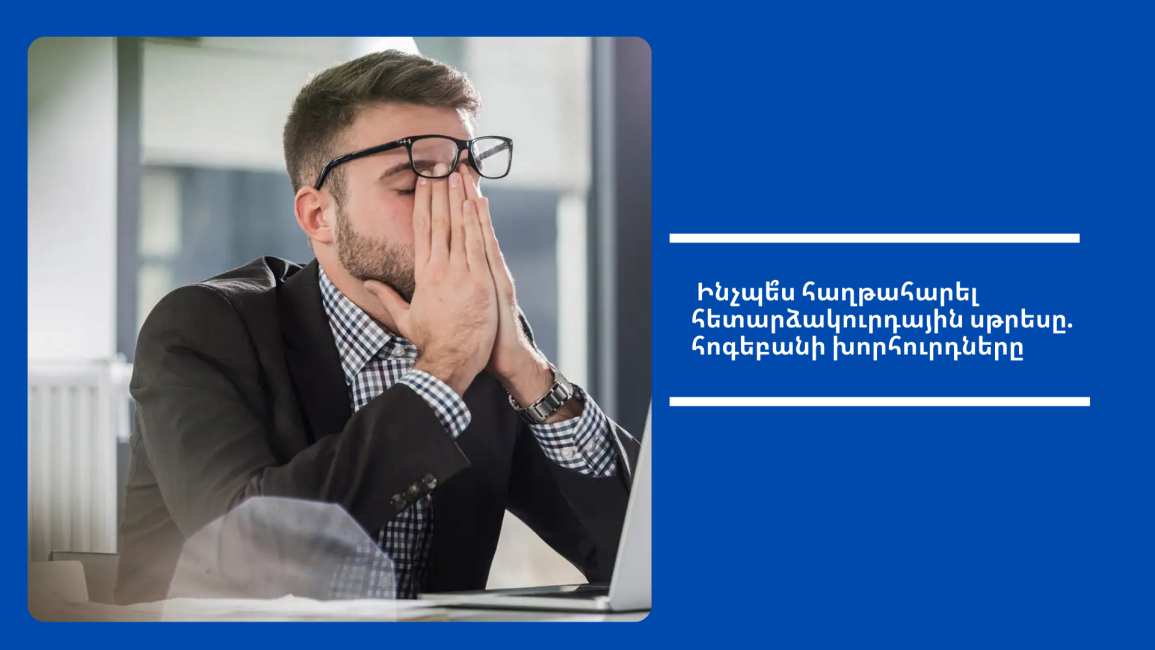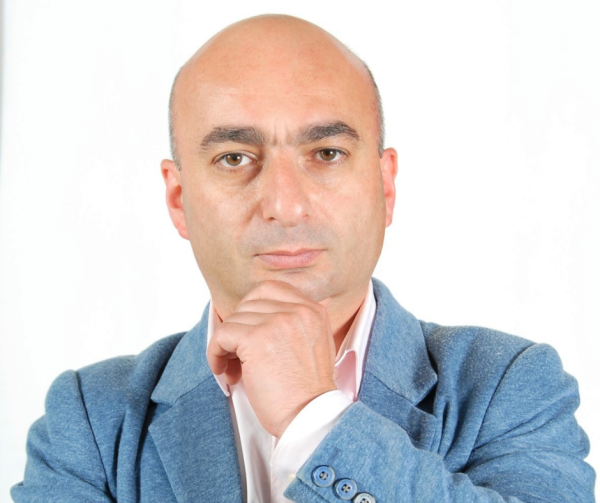August 22, 2025 | 13:47
Society
Post-vacation syndrome: YSU associate professor explains why it occurs and how to overcome it
Returning to work or school after a vacation is often more challenging than it initially seems. Even when we believe we are fully rested and ready to move forward with renewed energy, we may find ourselves facing a completely different reality. The transition back to daily routines can result in stress, fatigue, difficulty concentrating, and even a drop in motivation.

Many individuals experience mild disappointment after a vacation and may avoid returning to work or academic obligations. These feelings are entirely natural. However, there are simple methods that can help ease this transition.
This article delves into the causes of post-vacation stress, presents expert psychological advice for overcoming it, and outlines methods for regaining motivation and smoothly resuming an active routine. We discussed the topic with psychologist Hrachya Hovhannisyan, Associate Professor in the Chair of General Psychology at YSU Faculty of Philosophy and Psychology.
According to Hrachya Hovhannisyan, post-vacation stress is a psychological condition that sometimes arises after holidays, extended breaks, or vacations, when an individual returns to their regular daily life and work routine.

"Although this phenomenon has existed for a long time, it has been identified as a psychological issue only in the past 5–6 decades. It is now referred to as post-vacation syndrome. The term post-vacation blues, used to define this specific psychological phenomenon, began appearing in scientific literature in the second half of the 20th century. At that time, it was associated with the impact of accelerating societal rhythms on daily and professional life. From the late 20th century onward, the term has been widely used in Western media and psychological articles to describe a distinct and recognizable condition," explains the psychologist.
He further notes that to date, post-vacation syndrome is not officially classified as a mental disorder in diagnostic systems such as the Diagnostic and Statistical Manual of Mental Disorders (DSM) or the International Classification of Diseases (ICD). It is more commonly viewed as a temporary adjustment reaction rather than a mental illness.
Common Symptoms of Post-Vacation Stress Include:
Feelings of sadness, emptiness, or disappointment
Lack of motivation toward everyday tasks or work
Drowsiness or, conversely, insomnia
Difficulty concentrating
Irritability and fatigue during the first few days after returning, sometimes accompanied by mild psychosomatic complaints (e.g., headaches, muscle tension)
Main Causes of Post-Vacation Stress:
The contrast between the enjoyment experienced during vacation and the responsibilities of daily life
Disruption of routine, including changes in sleep, diet, and activity schedules
A mismatch between expectations and reality—while individuals often anticipate feeling recharged after vacation, the routine may still feel monotonous and burdensome
Emotional conflict between the freedom of vacation and the constraints of daily life
"Typically, post-vacation stress is temporary and lasts from a few days to about a week. If symptoms persist longer, worsen, or are accompanied by intense anxiety or depressive states, consulting a mental health specialist is advisable," Hrachya Hovhannisyan adds.
How to Cope with the Issue?
According to H. Hovhannisyan, it is important to recognize that post-vacation psychological challenges are not an inevitable part of returning to work. They may arise due to personal perspectives or uncontrollable life circumstances.
The following recommendations can help facilitate a smoother transition from vacation to everyday routine:
Ensure a gradual transition: If possible, allow 1–2 days for home-based adaptation before resuming work or studies.
Preserve positive vacation elements: Continue activities like walks, reading, engaging encounters, or newly developed habits from your break.
Refresh memories: Look back at vacation photos or relive vacation memories with loved ones.
Organize tasks: Break responsibilities into manageable parts to make the workload feel less overwhelming.
Engage in moderate physical activity: Exercise reduces stress and boosts mood.
Normalize sleep patterns: Return to a regular sleep schedule.
When asked how workplace managers can assist their teams during the post-vacation adjustment period, the psychologist responded:
"If you are a manager aiming to support your team during this transition, the following practices can be helpful in the first days back:
Start with sharing positive news and anticipated improvements
Show understanding and readiness to support your team
Allow employees to freely share their vacation experiences
Avoid diving straight into long-term or detailed planning
If possible, offer some flexibility in the work schedule
Assign lighter tasks or divide larger ones into smaller segments
Organize informal meetings focused on personal growth or motivation
Plan a team getaway during an upcoming day off.
In conclusion, Hrachya Hovhannisyan emphasized the importance of learning to balance work and rest in a sustainable way, making sure rest is properly prioritized and scheduled. It is not advisable to reserve rest solely for one long vacation per year, as this can lead to abrupt energy depletion and fatigue. Instead, rest should be viewed as a continuous and periodic process—daily, weekly, and annually.
Returning from vacation is not always easy—whether you're a student or an employee. However, by approaching this process with mindfulness, it can become not a source of stress, but the beginning of a new and recharging phase.

